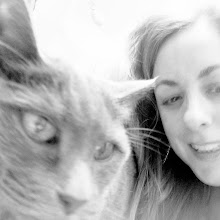Part One: Green-Eyed Soul
A self-described "little guy" (1967's "The Story of Them"), Northern Irish singer/songwriter George Ivan "Van" Morrison was born in Belfast in 1945. His Scottish father was a dock worker who played music on the side, his Irish mother was a jazz singer, and their home was filled with blues recordings. As Morrison once quipped (Mark Prendergast, Isle of Noises, 1989), "Some people are brought up on jam, I was brought up on Leadbelly and heads like that." (He wasn't, incidentally, raised as a Catholic or a Protestant, but rather a Jehovah's Witness.) Morrison began his music career by playing in skiffle groups at the age of 11 and dropped out of school at 15 to join the Monarchs, a successful live act on the European circuit. After the Monarchs ran their course, he formed Them in 1963 with a revolving door of Irish musicians and the occasional British session player.
Them's first recording success was a cover of Mississippi bluesman Big Joe Williams' "Baby Please Don't Go," released as a single in 1964. It hit the top 10 in the UK and remained on the charts for nine weeks. It is, in my opinion, one of the best blues covers you could ever hope to hear. And a lot of people got to hear it. According to John Tracy (Them Featuring Van Morrison, 1987), "Blighty's all-important television pop show Ready Steady Go adopted 'Baby' as its theme song." Spare, seductive, and completely groovy; it's got the feel of the blues and the spirit of the punk-rock yet to come (Morrison, by turns, makes love to his microphone and spits the lyrics into it). Two minutes and 46 seconds later, it's over. Not one wasted note or gesture. No drum solos, no gospel choirs--none of the excess that would turn blues-rock into a bloated mess, until the White Stripes, Mr. Airplane Man, the Black Keys and others reinvented the form, yet again, in the early-2000s. It would not, however, be Them's biggest single. That would be 1965's "Here Comes the Night," a top five hit in the UK. Interestingly, it was not written by Morrison--or any member of Them--but by American producer/songwriter Bert Berns (originally for Britain's Lulu, whose version stalled at #50).
Around the same time, UK groups like the Yardbirds, the Animals, the Pretty Things, and the Rolling Stones were playing the same kind of high-energy, blues-based rock. In fact, that's Jimmy Page behind the snake charmer guitar line for "Baby Please Don't Go" (according to Prendergast, Page is all over 1965's The Angry Young Them and 1966's Them Again). So Them wasn't doing something completely unique, but doing it in Northern Ireland certainly set them apart. Not that there weren't plenty of other "beat groups" in Ireland, like Bluesville (who had a top 10 hit in the US with "You Turn Me On"), but Them quickly broke away from the pack. Another quality that distinguished them from the rest of the mid-1960s blues-rockers, with the possible exception of the Spencer Davis Group's Steve Winwood, was Morrison's soulful voice, which garnered him frequent comparisons to Howlin' Wolf.
In their brief career, Them would go on to have other hits, like the immortal "Gloria," B-side to "Baby Please Don't Go," which would be covered by Patti Smith, Jimi Hendrix (who would also produce Irish group Eire Apparent's 1969 release Sunrise), and Van's "soul brother" Jim Morrison. In the Village Voice (Will Hermes, "Apocalypse Then," 11/21/05), on the occasion of the 30th anniversary of Horses, Smith claimed she chose to cover the song, sometimes mistakenly credited to the Shadows of Knight (probably due to the fact that their version became a top 10 hit in the US), because, "I like simple, three-chord rhythms. And 'Gloria' is so universal. It's so beautifully chauvinistic, so I decided that I would do the ultimate chauvinistic version."
Van Morrison left Them in 1966, but the group wouldn't officially disband until 1971. As a solo artist, he would increasingly integrate traditional Irish influences into his work, which is to say, lyrics of a more literary bent and more folk-oriented instrumentation--but without completely abandoning his "black" roots. Morrison's first solo single, for instance, the top five hit "Brown Eyed Girl" (1967), was originally called "Brown Skinned Girl," while as Musician's Bill Flanagan has noted (The Bang Masters, 1991), "With 'Come Running' and 'Domino' he'd even work out a way to bring his beloved R&B back in style." Then there's 1993's Too Long in Exile, which consists entirely of soul and R&B covers. That said, the more "Irish" he became, the more Morrison's popularity grew. In 1984, he told Kristine McKenna (Book of Changes) that he abandoned blues-rock--and the rock scene in general--when he realized, "Maybe this isn't really me." And by 1968, the year he made his break, that may have been the case. But between 1964 when Them released "Baby Please Don't Go" and 1967 when he recorded his own unique blues epic, "T.B. Sheets," Van Morrison was as black as a white Irish man could get.
Image: Song Bar ("A youthful Van Morrison and Them in the mid-60s").
Saturday, December 03, 2005
Subscribe to:
Post Comments (Atom)


No comments:
Post a Comment